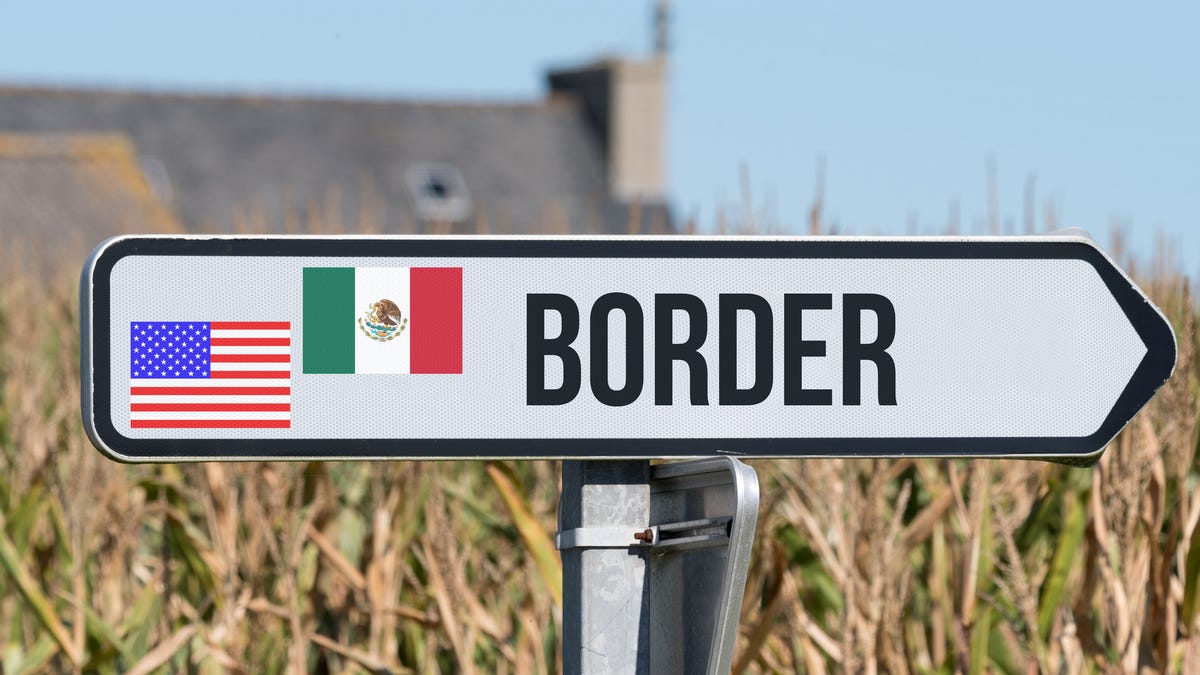| USA TODAY
Holidays 2020: Tips to help keep you stay safe from COVID-19
Holidays are usually for gatherings but many get-togethers are complicated or canceled because of COVID-19.
Travel restrictions have affected Americans and international travelers alike, but perhaps no one feels border-crossing conundrums more acutely than immigrants and their loved ones. And with the COVID-19 pandemic surging in several countries, their situations are likely to worsen before they improve.
The U.S. borders to both Mexico and Canada are closed through at least Nov. 21, according to a tweet from Acting Department of Homeland Security Secretary Chad Wolf earlier this month.
“To continue to limit the spread of COVID, the US, Mexico, & Canada will extend the restrictions on non-essential travel through Nov 21,” the tweet reads. “We are working closely with Mexico & Canada to identify safe criteria to ease the restrictions in the future & support our border communities.”
Canadian Prime Minister Justin Trudeau said his country will keep the border closed until the U.S. gets control of the coronavirus, which causes COVID-19 – and USA TODAY’s analysis of the most recent Johns Hopkins data suggests that day isn’t near: 18 states reported record case numbers for the week ended Sunday and another five recorded new records for deaths in one week.
Border crossings into the U.S. may be more locked down than out of the country despite the U.S. having the highest COVID-19 case count in the world, with more than 9.2 million.
All told, the U.S. reported a record 569,350 new cases, eclipsing the previous week’s high By way of comparison, its COVID-19 cases for the week of Oct. 26-Nov. 1 were more than 14 times the 38,799 cases Canada’s public health agency reported for the past two weeks.
Despite the land border closure, Canada has begun allowing extended family members who live in the U.S. to seek an exemption allowing them to travel north, provided they follow that country’s COVID-19 requirements. Rep. Brian Higgins (D-N.Y.) called on President Donald Trump to do the same on the U.S. side.
“I ask you to implement carefully calibrated exemptions to these restrictions – based on reasonable public health metrics – for property owners and those traveling to reunite with family across the border,” he wrote earlier this month. “The Canadian government has relaxed restrictions for travel of family members of Canadian citizens on two separate occasions already. … The United States, however, has yet to adopt similar exemptions for land border crossings.”
Some trips across the U.S.-Mexico border are worth the risk
Since March 21, the Trump administration has also restricted travel at the U.S.-Mexico border in order to slow the spread of COVID-19. Currently, border crossings into the U.S. are limited to U.S. citizens and permanent residents returning home and individuals crossing for “essential” purposes, such as work, school or health care. The restrictions do not apply to air travel.
A year ago, Leonardo Escobosa, a 22-year-old economics graduate of the University of Texas at El Paso, fell in love with Yailin Espinoza, 23, who lives across the border in Juárez, Mexico. Because of the pandemic, they spent five months apart, hoping the government would loosen the restrictions. Finally, in August, Escobosa decided to risk crossing, knowing his reason for traveling might be deemed nonessential.
He surprised Espinoza by arriving earlier than she expected at her mother’s house, with flowers.
“We hugged each other for like five minutes there on the sidewalk,” said Escobosa, who’d had almost zero physical contact with anyone since the pandemic set in. “I felt completely relieved. I needed a hug from my girlfriend.”
But if it had been up to the mayor of Juárez, he wouldn’t have been allowed to go.
Armando Cabada is asking the Mexican government to consider temporarily banning U.S. citizens from nonessential travel over the border as COVID-19 flares in the region. U.S. residents still are able to go to Mexico.
Travel by U.S. citizens in “indiscriminate crossings at the border in Ciudad Juárez are contributing in an active manner to the expansion of the virus,” Cabada said Friday in a letter to Mexico’s Secretariat of Foreign Relations.
El Paso is grappling with catastrophic spread of the deadly virus. According to The El Paso Times, which is part of the USA TODAY Network, the city reported 854 new cases as of Oct. 28, bringing the total number of active cases to 13,653.
Across the border, there have been 12,926 confirmed cases of COVID-19 in Juárez, a cumulative number that doesn’t reflect total active cases in the city as testing is far less common than in El Paso.
‘On the verge of a breakdown’
The stress of not seeing family or loved ones is not exclusive to those separated by America’s borders with Canada and Mexico.
In late August, Sarahy Sigie Reyes, 32, was all set to fly from Seattle to Hong Kong to join her new husband, Eugene Kobiako, a consultant who moved from Boston to Hong Kong in February.
Sigie Reyes, a Mexican citizen from Guadalajara, had all her documentation in order to board her flight, including the spousal visa she would need to live in Hong Kong. She booked with Air Canada because it offered the most direct route to Hong Kong.
The couple didn’t foresee any issues. “Or so we thought,” Kobiako told USA TODAY.
When Sigie Reyes arrived at Seattle International Airport on Aug. 28, she presented her spousal visa, her valid passport and other required documents, plus a valid negative COVID-19 test. But Air Canada’s check-in agent wouldn’t let her board because she wasn’t a Hong Kong resident.
She tried explaining that as a spouse of a resident of Hong Kong, she should be allowed to board. To prove her point, she showed the Air Canada agent the relevant section of Hong Kong’s official immigration website.
But it was all for naught: The employee “just walked away while I was trying to explain her that I had absolutely everything,” recalled Sigie Reyes, who broke into tears at the time.
Complicating matters further, her work visa was running out in the U.S., forcing the couple to make a quick decision about what to do next. They booked a new flight on Delta Air Lines, which would give her a layover in Seoul en route to Hong Kong. She boarded three hours later with no problems after presenting her spousal visa. She arrived in Seoul 13 hours later.
But Sigie Reyes ran into yet another problem upon arrival: Her negative COVID-19 test result, which was now older than 72 hours, was no longer valid. (Hong Kong requires that test results for travelers coming from high-risk countries like the U.S. be no older than that.)
“This meant that she was now stuck in transit as they would not allow her to board the next flight to Hong Kong,” Kobiako said. It left his wife “on the verge of a breakdown” and feeling “utterly helpless and broken.”
Ultimately, Sigie Reyes decided to pay an additional $2,200 to wait out her 14-day quarantine in an airport hotel room in Seoul. She eventually made it to Hong Kong, where she had to quarantine for yet another two weeks.
“It’s been a long roller coaster ride,” he said. “It just feels like a whole month of her life was wasted.”
Air Canada later told the couple that Sigie Reyes was denied boarding because she did not present an electronic travel authorization form, which is required of Mexican citizens flying through Canada. She said she had it with her, but no one from the airline asked for it during check-in. The airline told USA TODAY it refunded her ticket.
“It was super difficult and frustrating,” Sigie Reyes said of her ordeal. “Especially because I prepared everything, and I had everything in order, and it was like nobody was listening to me.”
Contributing: Jayme Deerwester and Mike Stucka, USA TODAY; Veronica Martinez, Lauren Villagran and Daniel Borunda, El Paso Times
Traveling for the holidays? Expect more traffic on the road and in the sky, despite COVID-19
In case you missed: Tens of thousands arrive in Hawaii with pre-travel testing









